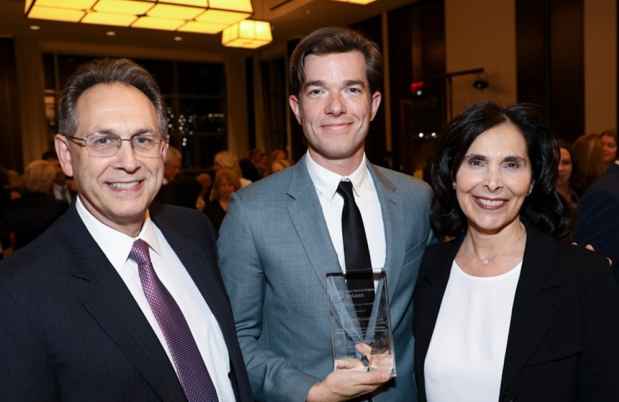Neuroscientist Sabina Berretta, MD, received $35,000 as one of the earliest recipients of a research fellowship from the Rappaport Foundation. The funding supported her research into structural changes that occur in two brain regions of people with schizophrenia. That modest grant laid the foundation for the next 19 years of her research and provided Dr. Berretta with promising preliminary data that opened numerous doors for her.
“Over the years, I have received several million dollars of federal funding which can be linked back to the initial results from the research the Rappaport fellowship enabled me to do,” says Berretta. Her research may eventually help clinicians better treat schizophrenia by enabling improved diagnosis and treatment.
Established in 2001, the Phyllis and Jerome Lyle Rappaport Mental Health Research Scholars Endowed Fund, named after the long-time Massachusetts-based philanthropists, began by funding one promising researcher each year. Several years later, the foundation upped its financial commitment to fund a second annual fellowship. For Jerry, a developer and political activist, the McLean fellowship continues a thread that runs through his family’s philanthropy.
“Across the board, our foundation funds emerging leaders,” says Jerry. “We particularly like funding investigators at McLean because by the time they arrive at this world-class institution, we know they’ve been thoroughly vetted. And although our fellows are relatively new in their fields, they’re already highly accomplished. We know they will go on to do even greater things.”

Since the endowed fund was created, 20 McLean researchers have been named Rappaport fellows, and their investigations have delved into everything from the processes that lead to the death of neurons characteristic of Alzheimer’s disease to the neural circuitry of emotional overeating. The fellowship has enabled the type of novel, high-risk/high-reward research that traditional funding sources like the federal government tend to eschew. Based on promising data during their Rappaport year, several researchers have successfully reapplied for a second year of funding, including Darrick T. Balu, PhD, who was a fellow from 2012-2013 and again from 2013-2014.
Fostering Independence
Like Dr. Berretta, Dr. Balu also studies schizophrenia and the role certain proteins and amino acids play in the structural and biochemical abnormalities of the brains of people with the disease. His work may eventually contribute to the discovery of better alternatives to currently available antipsychotic medications, which don’t address some of the disease’s symptoms and have serious side effects. Today, Dr. Balu is director of his own laboratory at McLean, the dream of many researchers, thanks to a large federal grant he received after his fellowship. “The Rappaport support paved a path to where I am today,” says Balu. “It facilitated my independence.”
Researcher Kristin N. Javaras, DPhil, PhD, also a two-time fellow, completed her second year of the award in 2016. She studied emotional overeating, a tendency that is a predictor of eating disorders and obesity later in life. The Rappaport support allowed her to develop an experiment—with equipment she designed—that quantifies how much subjects eat when they’re under stress. Year two of her fellowship allowed her to test her methodology in a broad sample of people.
Taking a Chance on Innovative Research
“The Rappaport fellowship was wonderful, because test development is difficult, risky work,” Javaras explains. “This particular test took a lot of time to develop. I built three versions of the equipment before it worked. There are many moving parts.” Understanding emotional overeating could eventually lead to earlier and better interventions for eating disorders, according to Javaras.
Mei-Hua Hall, PhD, a Rappaport fellow from 2009-2010, studies schizophrenia and bipolar disorder in an innovative way that bypasses diagnostic categories and focuses on an individual’s biological profile. Her promising work could eventually lead to earlier detection of these diseases and more targeted treatments.
“Across the board our foundation funds emerging leaders... And although our fellows are relatively new in their fields, they’re already highly accomplished. We know they will go on to do even greater things.”– Jerry Rappaport
“Without the Rappaport Foundation’s support, it’s unlikely I would have received federal funding,” says Hall. “What I proposed was a very high risk, novel approach. I didn’t have any preliminary results or a track record.” The Rappaport investment paid off. In the years since her fellowship, Dr. Hall has received several large grants from the National Institute of Mental Health to continue her research.
Jerry says it’s been heartening that so many of the Rappaport fellows have continued to work at McLean. “We’ve been extraordinarily impressed by the young people who have been Rappaport scholars and the progress they’ve made,” he says. “It’s been a very satisfying relationship between our foundation and McLean.”
Media Requests
Journalist or member of the media? We are available 24/7 for media requests.



